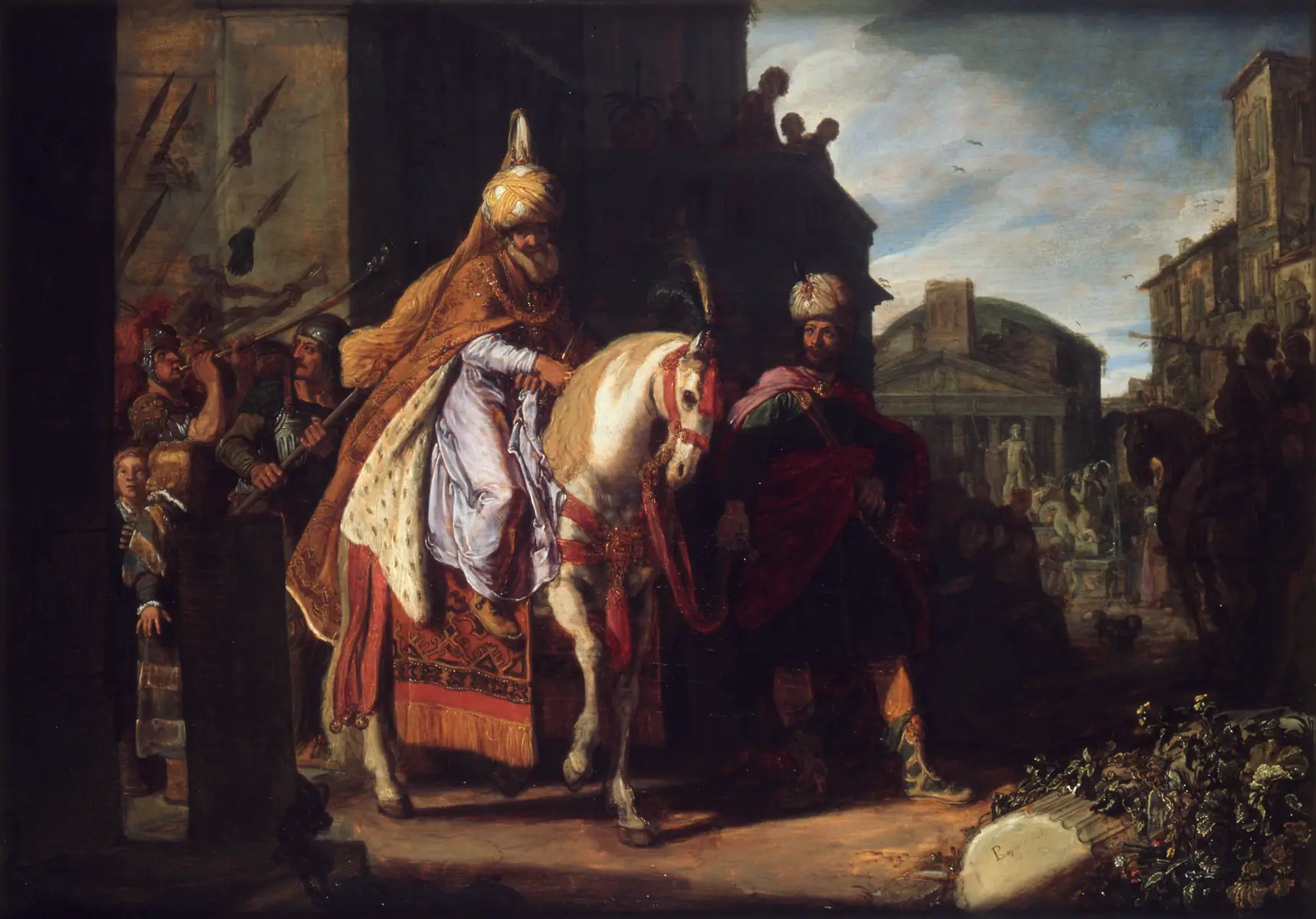BS”D
I’ve written previously, that the stunning turn of events chronicled within Megillas Esther really began when the Jewish people gathered together to fast, do teshuva, and plead to Hashem for mercy at the request of Esther HaMalkah. The situation may have seemed hopeless, yet they strengthened themselves in the belief that a geula could still come.
The full impact of their efforts, however, was not actualized until almost two years later, when the Jews read Megillas Esther on the very first observance of Purim. At that point they could clearly see Hashem’s Hand hidden within the string of seemingly unrelated details and events. It may have seemed at the time that Hashem had abandoned His people, but in truth He was always very close.
So strong was this Divine revelation that the Jews were inspired to accept the Torah anew.
This hints to a very important yesod that we can tap into in times of personal adversity and distress.
Hashem is with Us in Our Sorrow
Chazel teach that Hashem sends His Presence out to comfort and guide the Jewish people in golus. As it says, “When they were exiled to Mitzrayim and to Bavel, the Shechina was with them.”
In parshas Vayigash, Hashem tells Yaakov Avinu: “I will go down with you to Egypt, and I will also bring you up.” We know that the Egyptian exile was the shoresh and model of all future exiles (Bereishis Rabbah 16:4). According to the Sfas Emes Hashem’s statement is not just a Divine promise to Yaakov Avinu, it is simultaneously a promise to all future generations that Hashem’s Presence will be with us in every experience of golus.
Moreover, the fact that the “I” in Hashem’s promise to Yaakov, is placed before “with you” teaches us that Hashem’s Presence doesn’t follow the Jewish people into golus. The Shechina “precedes” us and greets us upon our arrival. Likewise, the meaning of, “I will also bring you up,” is that Hashem precedes us, prepares for us and awaits our arrival, in the resulting geula. As our Sages teach,
Behold, I am standing there before you…
“Hakodash Boruch Hu said to [Moshe],
wherever you see the footsteps of a person,
there I am in front of you.”
Yalkut Shimoni, Shemos 17:6
But, golus does not just happen on a national level. Golus simply means any experience where Hashem’s Presence is hidden.
So, Hashem sends out His Presence within our personal lives, as well. Whenever we forget that Hashem is running the world… or feel that Hashem has “Hidden His Face” from us and closed the doors to our tefillos… or we are knocked down and out by a difficult nisayon… at those exact moments Hashem is actually very, very close. If that’s true then contained within every difficulty we can experience is a tremendous ais ratzon.
But, here’s the rub. We can only take advantage of this ais ratzon, when we agree to be in golus in the first place, because that’s where Hashem is waiting for us. If we instead spend our time fighting, denying, agonizing or running away, then we miss a special opportunity to connect to Hashem and to reveal a bit more of our own inner light in the process.
Our job is to accept that our present difficulty is what needs to happen, to take the Divine message and call out to Hashem with even the slightest level of emunah and the slightest desire for teshuva. Then it is time to step back and just “let” Hashem run His world.
As a result Hashem will pull back the curtain and reveal Himself in some way. That instant we become aware of Hashem’s Presence is by definition no longer golus… even if it seems that nothing externally has changed.
Simcha in the Darkness of Golus
Yaakov Avinu’s life is defined by the adversity and struggles he experienced: Eisav’s plot to kill him, the loss of his possessions upon leaving his father’s house, being cheated and tricked by Lavan during his 20 year stay in Haran, the kidnapping and violation of his daughter Dina at Schem, the sale of his beloved son, Yoseph, and years of famine.
According to Rav Chaim Shemuelevitz, Yaakov wore his troubles on his face, so much so that upon meeting Pharaoh, the Egyptian king was moved to ask him his age. The Midrash criticizes Yaakov’s terse reply:
Few and hard have been the years of my life, nor do they come up to the life spans of my ancestors during their sojourns. (Bereshis 47:9)
For this apparent complaint, Chazel teach that Yaakov was punished with the loss of over three decades of his life.
Yet, it was precisely in his final years living in the depths of Mitzrayim, which literally means “from the dire straits,” that Yaakov Avinu finally came to the shalom and simcha he had always wanted.
Within every challenge and struggle we face in life, Hashem hides His Presence. Though He may seem far, He is actually very close. If we can recognize these moments of adversity for what they are, hidden revelations of Hashem, and chose to seek Him, then everything will be turned around. These very challenges then become revealed revelations of Hashem and the light of our true spiritual selves.


